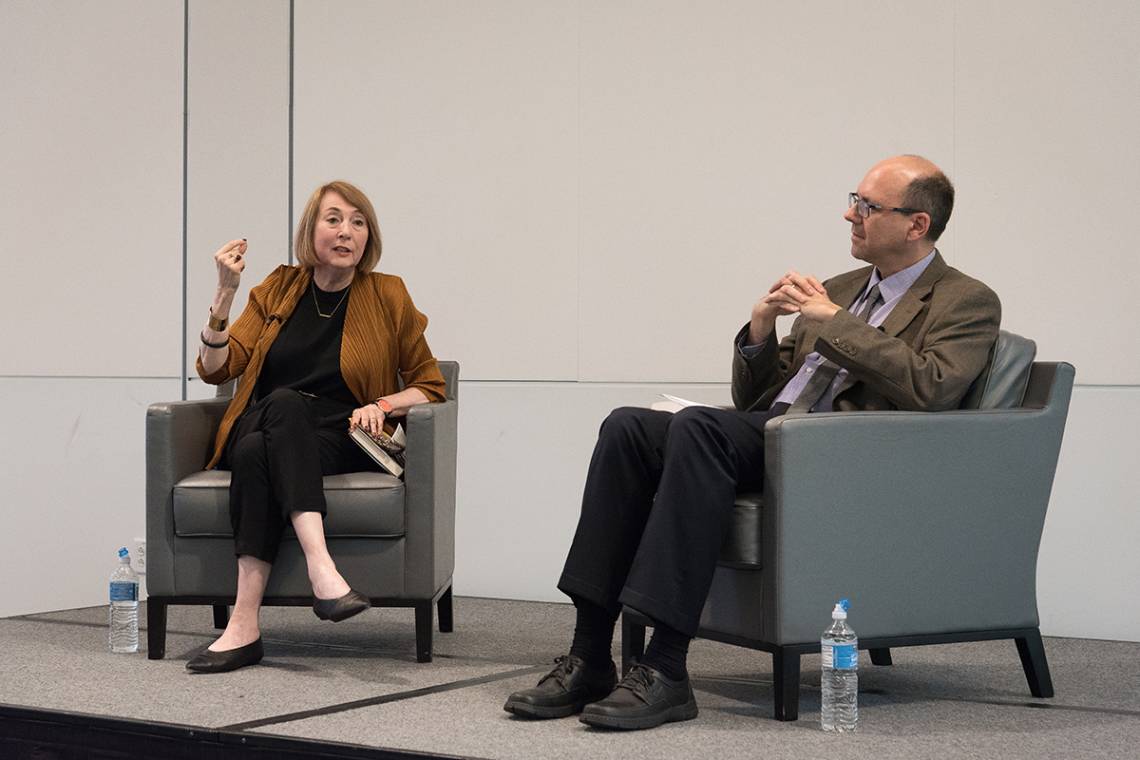The New Education: A Call for Higher Education to Reinvent Itself
Cathy Davidson returns to campus to discuss educational reform and the effects of new technologies

The last time the U.S. went through an economic revolution, shifting from an agricultural to industrial economy in the mid 19th century, higher education adapted by creating the modern research university.
Now new technologies are driving a similarly disruptive change in the economy. Cathy Davidson says higher education isn’t making the equivalent adaptations this time around, though.
“We haven’t remotely gone through the kinds of educational changes that happened back [at the time of the industrial revolution],” said Davidson, speaking before an audience of about 200 people in Penn Pavilion on Thursday.
A former Duke English professor and vice provost for interdisciplinary studies, Davidson now leads the Futures Institute at the City University of New York and is author of “The New Education: How to Revolutionize the University to Prepare Students for a World in Flux.”
In an 80-minute workshop that included small group discussions, Davidson raised several topics connected to the cataclysmic changes that technology is bringing.
“We need an education that is not about technology as a thing but as technology that both empowers and disempowers; it empowers good guys and bad guys,” Davidson said. “It can be incredibly inequitable.”
She said siloed universities are ill-suited for research and teaching about related social and economic problems.
“People say ‘oh, the poor humanities,’” Davidson said. “The humanities will be fine. If we make science so isolated from human values, we’ll end up with people saying science doesn’t matter. We’ll have science deniers, climate deniers.
“There are lots of ethical, moral and social issues that we have to reintegrate with how we do science. The siloes of the 1890s worked when we were inventing the professions. They don’t work anymore.”
Davidson said she left Duke after two decades not because she didn’t love the people and the university – she does – but because “I needed to put my money where my mouth is.”
“For years I had been talking about the need to support public education and how it’s underfunded, and people would look at me strangely and say, ‘but you work at Duke University’,” Davidson said. “So, I moved to the most urban, most underfunded public institution of higher education in the country, and I quickly found that I hadn’t begun to understand the obstacles to education these students face on a daily basis.”
Universities aren’t the only elements in society that need to adapt, Davidson added. Public attitudes do, too. Davidson called for broader recognition of the deep value that education provides for a healthy society.
“There is a teacher shortage in 50 out of 50 states,” Davidson said. “If we were truly a capitalist society, you’d think that we would solve that by paying teachers more. The fact that we’re not shows that it’s not an educational problem; it’s a social problem.”